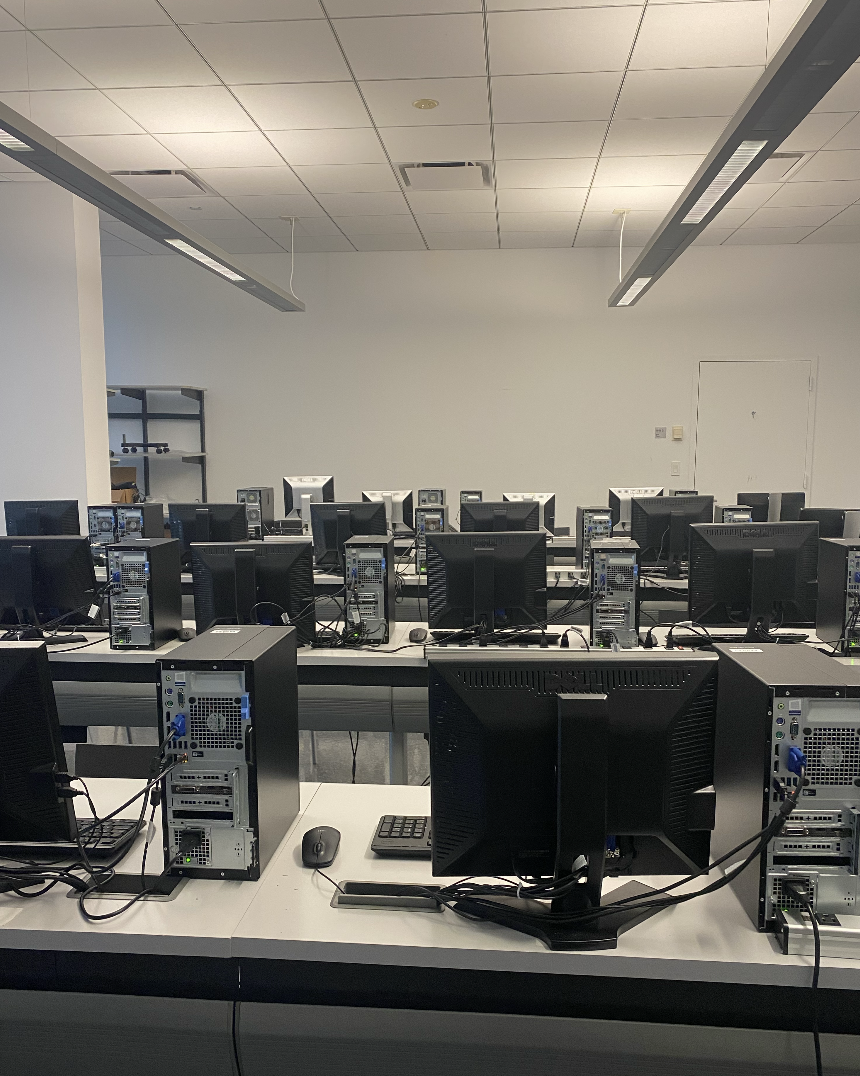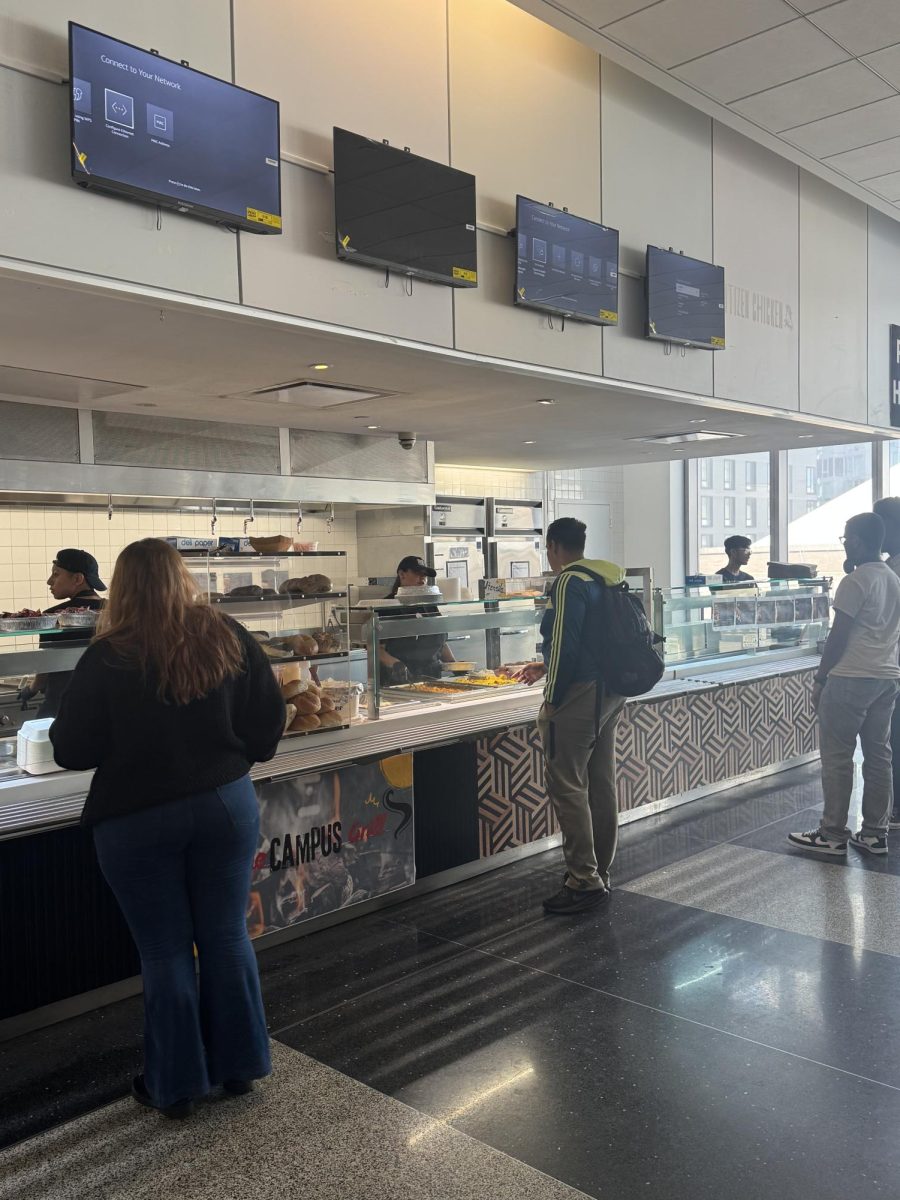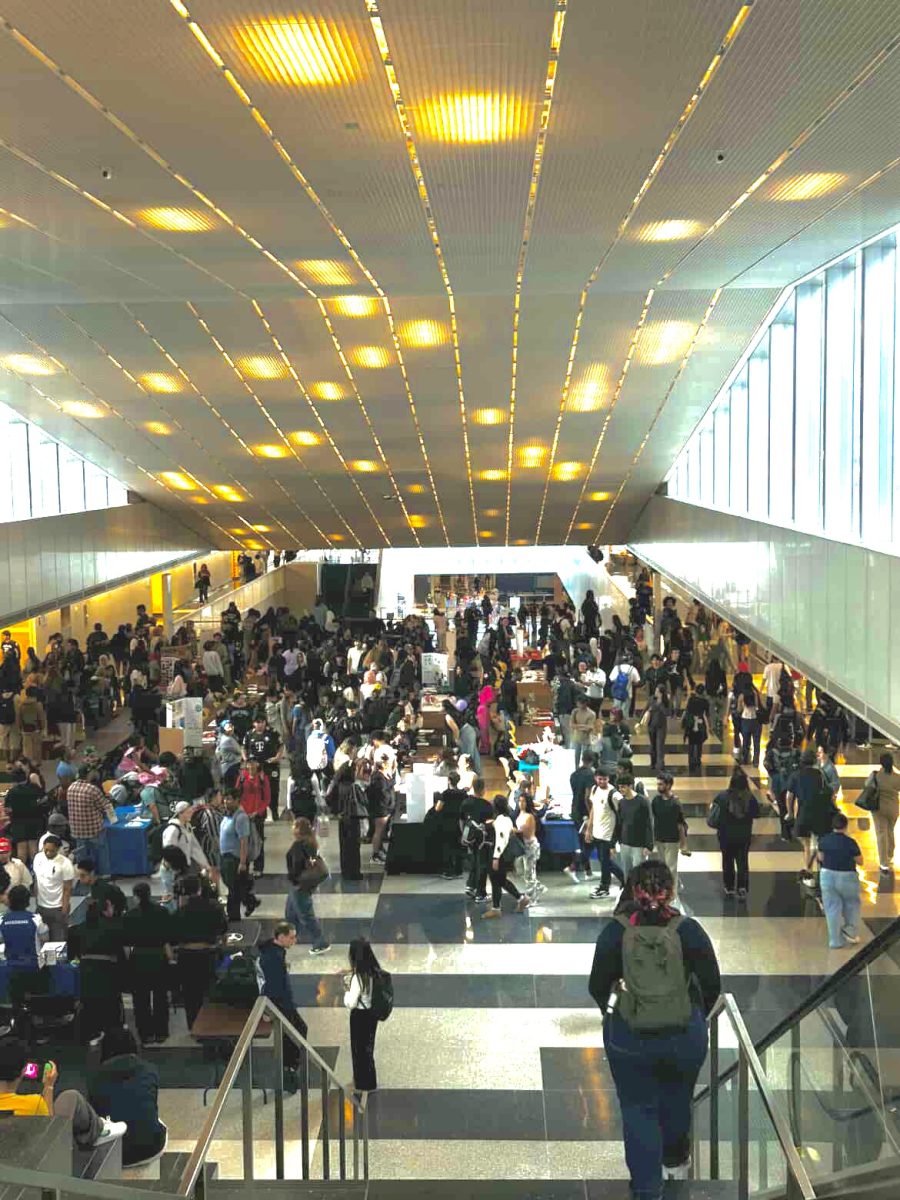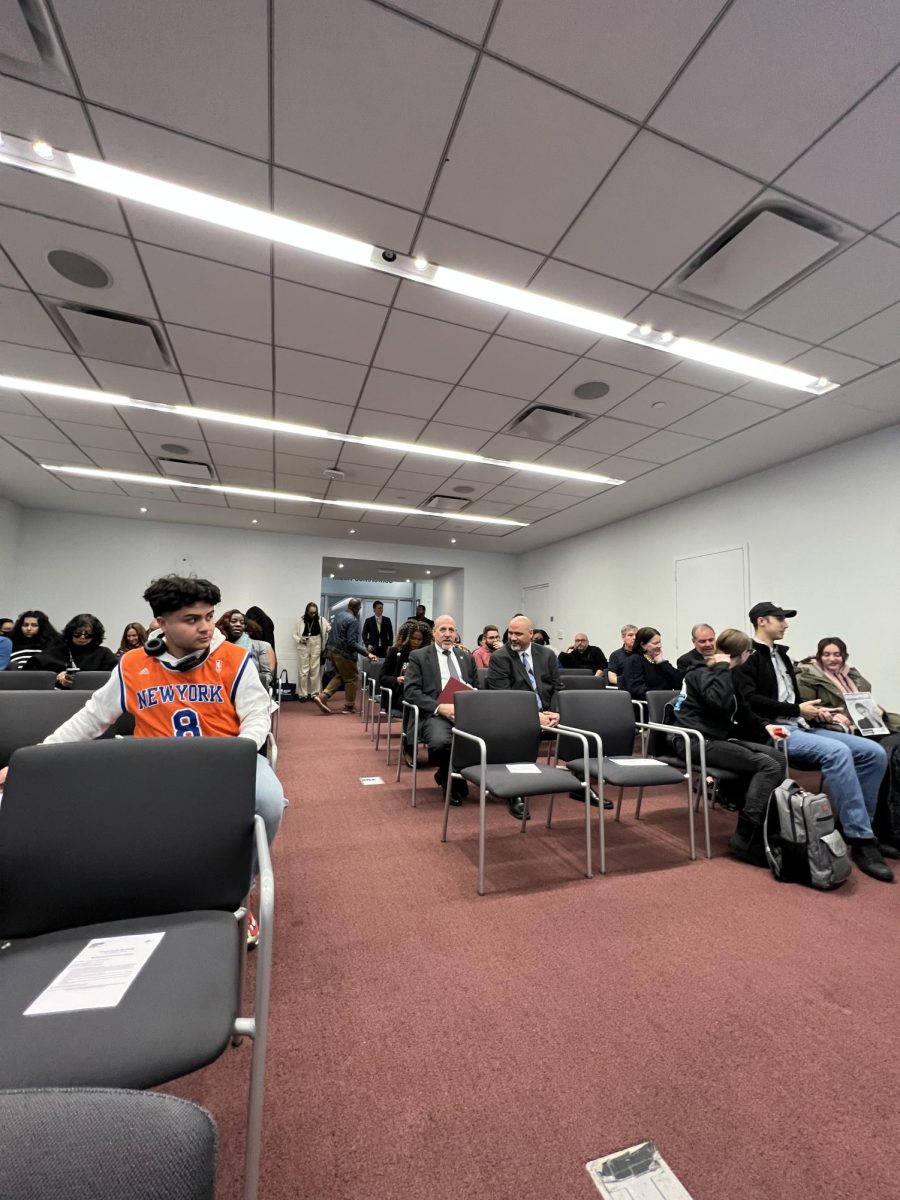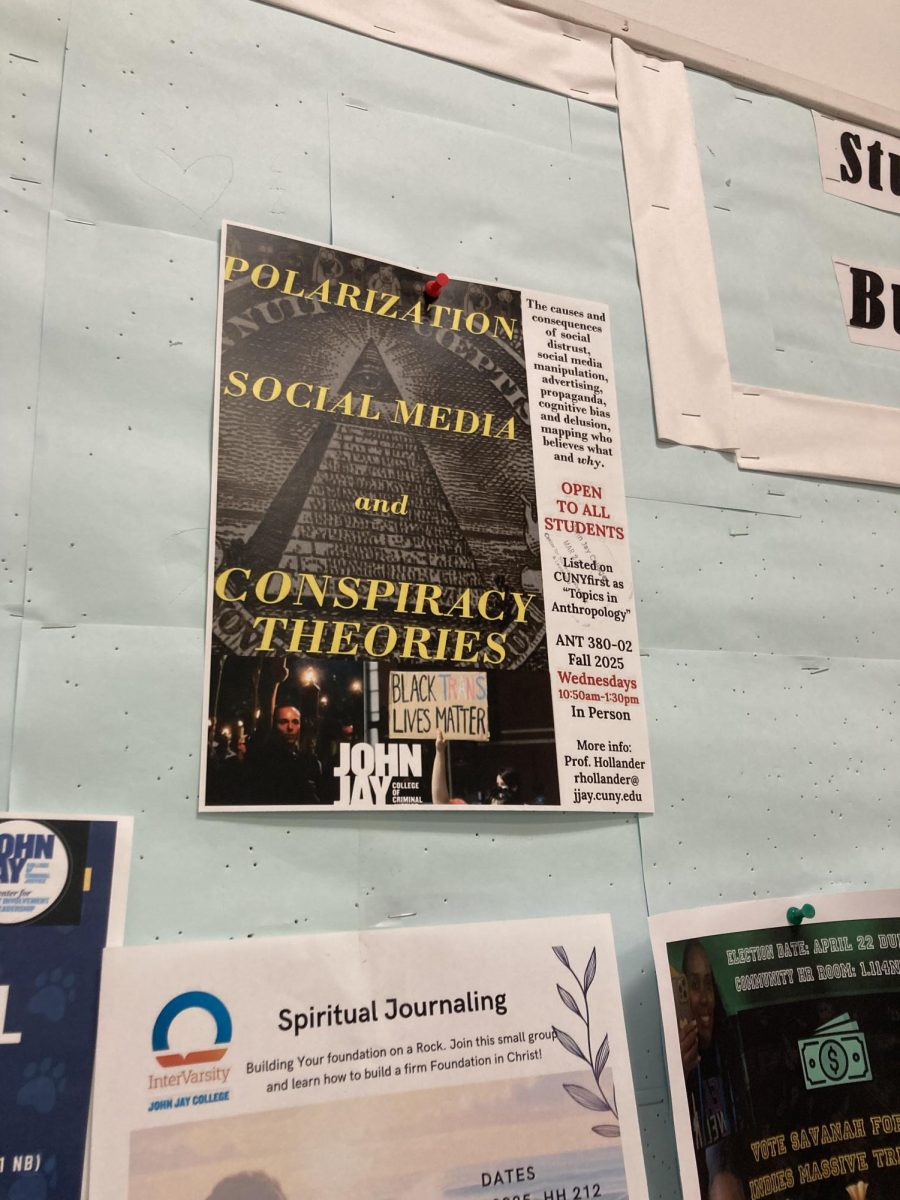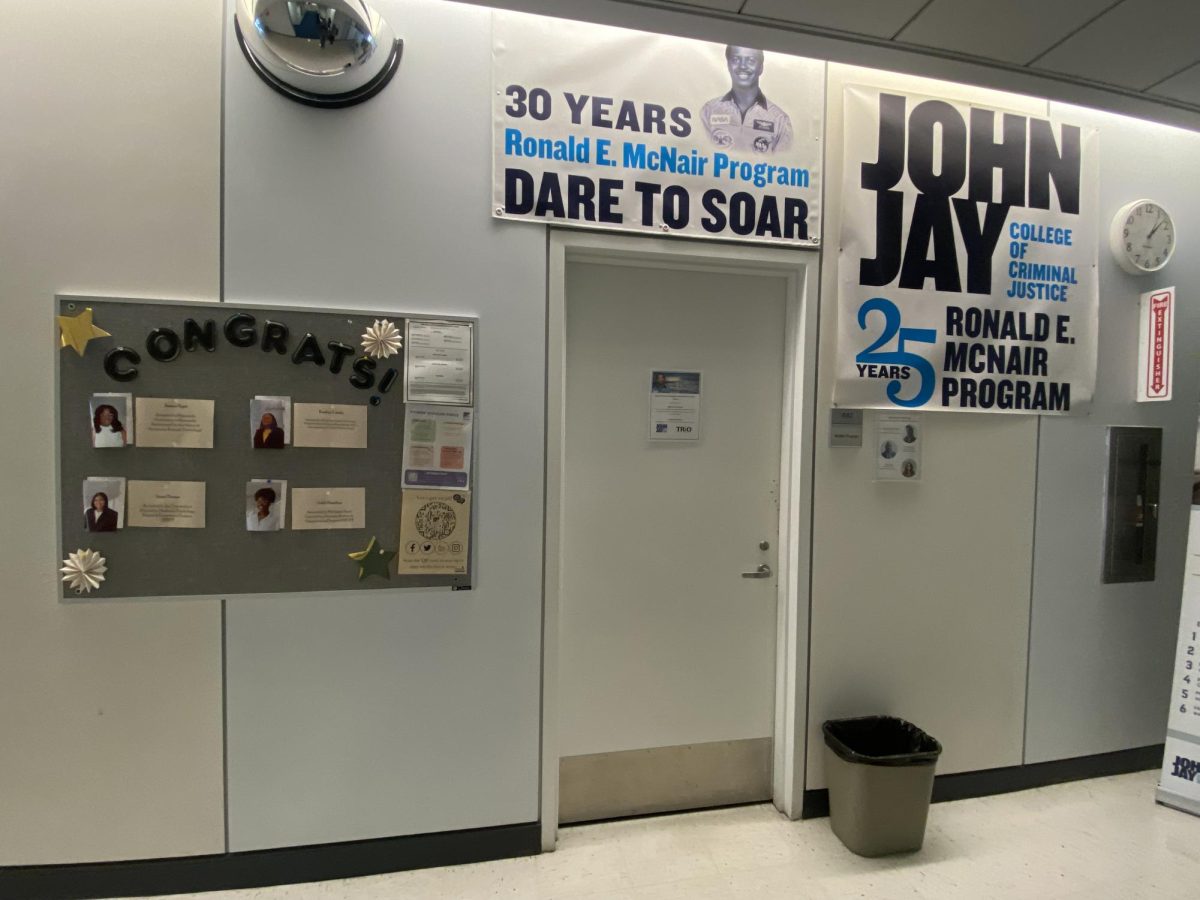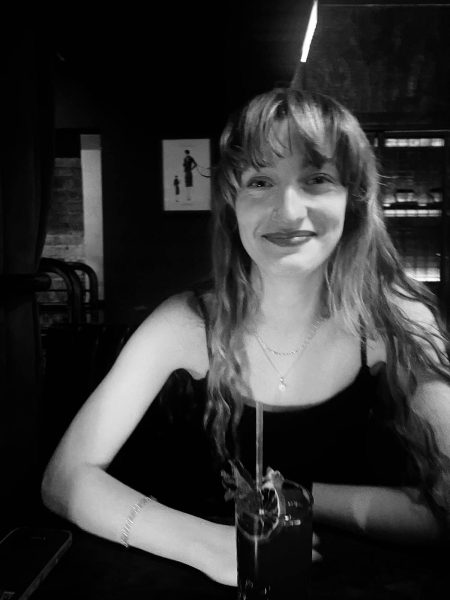Last year, the Girls Who Code chapter was founded to build a community for students wishing to learn more about coding, and John Jay students shared their thoughts on the impact of the club.
Perla Dahan, computer science major and sophomore, founded the Girls Who Code chapter at John Jay, which is a part of an international non-profit organization that works to bridge the gender gap in computer science fields.
“I had heard of Girls Who Code before, but there wasn’t one at John Jay or nearby,” said Dahan. “So, I decided to start my own!”
This mission has fostered support amongst John Jay students.
Damien Tan, a freshman and political science major, is happy to see the club here at John Jay. He is pleased that more women have an interest in going into computer science.
“It’s good to see women entering a male-dominated field, since I don’t know that many women in the field,” said Tan.
Daniel Hannan, freshman cellular and molecular biology (CMB) major, echoed Tan’s remarks. He believes this field can be an avenue to break gender stereotypes.
“Coding overall is just a very empowering field for individuals and is a great way to break gender norms for anyone who wants to get involved,” said Hannan.
Girls Who Code provides opportunities for computer science and non-computer science students alike, of any age or gender.
However, Izzy Alonzo, a freshman biology major, who identifies as non-binary feels the name is restricting.
“I wouldn’t join the club because it would be detrimental to my gender identity, despite enjoying coding,” said Alonzo.
While the club may have a gendered name, other students believe the club is doing great work to help students pursue their studies in computer science.
Katharine Wyant, a senior, applied mathematics major and secretary of John Jay’s Computer Science Society Club, is pleased with the work of clubs like this.
“John Jay’s computer science clubs are doing really good work and are making progress for computer science students by increasing available opportunities and establishing a welcoming community,” said Wyatt. “I’m really proud of the work they’ve done, and I can’t wait to see where they go.”
Girls Who Code offers an array of resources to members, such as interview preparation, networking events, and career fairs.
Dahan emphasized the importance of these career-based opportunities, which connects members with computer science professionals from across the globe. This is expected to increase career placement for students of related majors.
“I have noticed that a lot of computer science majors don’t end up in computer science careers, and I want to change that,” said Dahan.
Frida Mesa, a sophomore and computer science major, expressed her enthusiasm towards the club.
“I think it would help girls in the computer science major connect and help each other when we are struggling,” said Mesa. “It would make computer science less intimidating because we know we would have support from the Girls Who Code chapter.”
Girls Who Code also focuses on teaching the basics of coding to non-experienced members. Coding employs multi-faceted techniques that are beneficial to any area of study, especially as AI and other technology have become increasingly prominent in the workplace.
Dahan explained that inexperience in coding should not deter students from joining the club.
“Many students may also be glad to hear that you don’t really need to know math to participate in the coding activities,” said Dahan.
Alicia Umana, Freshman CMB major, even has an interest in joining even though she is not majoring in computer science.
“I’d consider joining, even if it’s not my field of focus, just because I think in any STEM job, computer science and coding show up a lot,” said Umana.
Olivia Fratangelo, a junior Computer Science student, explained how coding has helped her in different areas of her life
“In John Jay’s PRISM Undergraduate Research Program, I’m learning how to utilize Python and machine learning for bioinformatics in human evolution research,” said Fratangelo. “ I’m still learning about new ways I can utilize these skills like in climate solutions, healthcare, and education.”
Alexis Roman, freshman toxicology major , echoed these remarks, noting the value of the club not just for career-oriented goals but also simply as a hobby.
“It gives people an opportunity to try something new and learn a lot whether it’s for fun or for future use,” said Roman.
The club recently announced its e-board, consisting of Perla (President), Elisa (Vice President), Mario (Treasurer), and Adam (Secretary).
The e-board is brainstorming events for the year, which includes a collaboration with the Women in Cybersecurity Club, a CUNY-wide hackathon, and a “capture the flag” month-long hackathon in which students can win scholarships for participating.
Dahan shared a closing message for any new members joining the club, regardless of their coding experience.
“Welcome! We are so excited to have you!” she said.
Anyone looking to join the club or keep up with upcoming events can follow the club’s Instagram page @girlswhocodejj.



